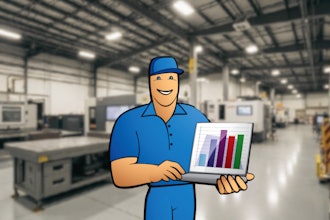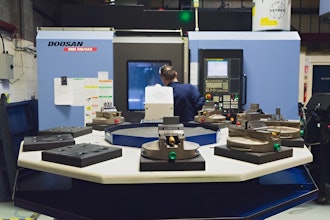
When executives think of the manufacturing ERP systems, they often relate with them to be limited to corporate offices' administrative functions. This misconception may partly be because of how the Purdue Model depicted the place for business or ERP systems.
Along with this misunderstanding, limitations of traditional ERP systems, perceived fear of cyber-attacks, and underutilization of ERP capabilities played a notable role in why ERP systems rarely communicated with the shop floor. While modern manufacturing ERP systems have come a long way to support shop floors' needs, these psychological barriers prevent manufacturing companies from taking full advantage of ERP systems.
The Misunderstanding of the Purdue Model
The traditional misunderstanding of the Purdue model still plays a significant role in how manufacturers think of new ERP systems.
The idea of layers in the Purdue model was to communicate technical boundaries of different enterprise systems. It didn't intend to express them as corporate boundaries. Also, just because ERP systems live in the enterprise zone, it doesn't mean that workers or machines on the shop floor can't communicate with them.
Besides, with the rise in cloud computing, the corporate data centers may not be as relevant as you can access your ERP from wherever you like, regardless of where your providers host them.
The Limitation of Legacy Systems
Additionally, the legacy systems used technologies that were limiting. So they would specialize in one area such as accounting, inventory management, or job costing. But reporting and recording of crucial shop floor and warehouse data remained manual using papers.
The legacy systems also lacked their capabilities to create simpler, user-friendly workflows that would be easier for field workers to interact with the system. This approach of running shop floors on paper limited ERP systems' usage to corporate offices. In this approach, the corporate office admin worker would collect the sheets from shop floor workers and record them on their behalf.
The modern ERP systems provide necessary workflow and control at each step of your shop floor to ensure data collection and real-time data reporting to make crucial business decisions during your sales cycle.
The Perceived Fear of Cyberattacks
Moreover, because of the perceived fear of cyberattacks and, as a result, disruption with business operations, business owners are afraid of embedding shop floor business processes with an ERP.
However, as IIoT becomes prevalent and most machines become connected to the internet, isolating ERP interactions on your shop floor is not a solution to cyberattacks. In fact, if you are using a cloud system, the cybersecurity issues are well-taken care of by the software provider.
By not utilizing the key ERP functionality such as shop floor data collection, in-process quality control, material planning, and critical resources scheduling, you hardly gain ERP systems' true potential.
The Poor Habits due to Legacy Systems' Limitations
Finally, the psychological barrier of changing the current way of doing things is also why ERP systems are heavily underutilized and stayed within corporate offices.
Just because your legacy system didn't support scheduling and automated data collection, it doesn't mean that you should run your shop floor on paper. The most modern system incorporates best practices from several industries, and their design optimizes your processes.
Sure, you might argue that your processes are uniquely different. But, in most cases, they might not be process uniqueness but rather "poor habits" or "shortcuts" that you may have carried over to work around the shortcoming of your legacy systems.
Conclusion
In closing, if you don't interact with your ERP system as you move your Work-in-progress (WIP) items from one operation to the next, you might have locked your ERP system in your corporate office.
The modern ERP systems work like a chameleon supporting both macro-and micro- needs of an organization. The modern ERP systems minimize the number of steps that shop floor workers need to perform to collect crucial shop floor and warehouse data. Plus, they automate most data collection and entry. The modern ERP systems also provide workflow centric mapping for their daily activities to minimize training time for shop floor workers.
Your goal with an ERP system should be to digitize your operations as much as possible. If you notice tons of papers on your shop floor, it could be a symptom that you may not be using your ERP system effectively.
Don't limit your ERP system just to your corporate office. The more you use your ERP, the more it will be able to help you.






















